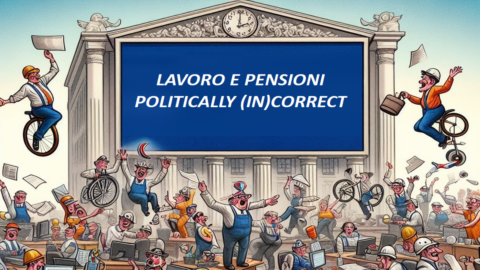If the Morandi bridge in Genoa had been entrusted to the control of an independent authority, would it have collapsed anyway? It is legitimate to doubt it. Why? Taking for example the matter of water entrusted since 2012 to the regulation and control of the Energy Authority. Six years later, the judgment on the work carried out is decidedly positive: prices have realigned themselves with costs, quality has improved thanks to the recovery of investments, a bonuses to support the most disadvantaged groups. The activity of Arera (Independent Authority for Energy, Networks and the Environment) is fully promoted by a study by Ref.ricerche, the laboratory founded at the time by Carlo Dell'Aringa to investigate sectors ranging from public finance, to infrastructure, to prices.
30 YEARS OF RULES IN ENGLAND AND WALES
To evaluate the work of our Authority, the Ref researchers compared the experience achieved in England and Wales with Ofwat, the independent public Authority which took over the water sector in 1991 and is considered a point of reference in Europe. The differences between the Italian situation and the English one are abysmal: essentially our country is 30 years behind England; not only that, but while over the Channel Ofwat was faced with ten managers, here Arera had to deal with a thousand, almost all small or micro, with the exception of large utilities such as Hera, Acea, Iren which can be counted on the fingers of a hand. Result? “The student has surpassed the master” is Ref's verdict that explains why.
“In England and Wales – reads the conclusions of the research – in the very first years following privatization (which took place in 1989 and followed by the Water Act of 1991) the priority was immediately given to the revival of investments. The English model had the advantage of immediately and for a long time ensuring a large flow of financial resources to support management investments. However, the English Authority has been harshly criticized for some too generous choices which may have sustained the profits of the managements to the detriment of the users”. And in Italy? Here Arera has embarked on "a process of recovering the costs of the service and adjusting the long-compressed tariffs for reasons of consensus, making choices capable of restarting investments as well as improving the quality of the service". The Italian approach "has favored gradualness without forcing" also due to the strong focus on the water sector also subjected to a referendum and afflicted by endless controversies. In short, the scaffolding designed by the Area, explains the Ref studio, managed to design a framework of prudent and gradual rules that worked, data in hand, and avoided unjustified price increases by instead promoting necessary investments in a deeply backward sector (except some exceptions).
COST RECOVERY AND THE QUALITY PERIOD
Here is a summary of the data on which the search rests. If it is true that more than twenty years passed before Italy chose to adopt an independent regulator of the English model, it is also true that ours immediately had full powers and was thus able to avoid some distortions. In England, the first five years of regulation (1990-95) prompted cost recovery with a 34% increase in tariffs. in line with what happened in Italy between 2012 and 2019. But in Italy the tariff increase served both to realign prices and costs of the service and to support investments. In England, on the other hand, the tariff essentially covered investments which doubled in just a few years: from 2 billion pounds in the 80s to over 4 billion in the early 90s. Another indicator is the trend of the Rab (Regulatory asset base ) which went from 557 to 968 euros per inhabitant with an increase of almost 70%. In Italy we started from 250 euros to reach 390, with an increase of about 60%.
The benefits of the English formula arose in terms of a significant improvement in the service both from a technical point of view (dispersions and interruptions almost zero) and from a contractual point of view (responses to customers and efficiency) but in the initial phase they led to extra profits for the managers that Ofwat then had to correct and a heavy debt of the operators to support investments, with consequent difficulties in managing the financial equilibrium.
Going back to the Italian experience, between 2012 and today tariffs have risen by 30%, the dynamics of per capita investments have gone from -1 to +38%, the increase in the per capita Rab has risen from zero to 28%. In practice, these are curves that gradually increase against a trend of leaps and subsequent slowdowns in the English case, with Rab peaks of 70%. An improvement which, the Agici study center highlighted, can be considered as the beginning of a “new Italian Renaissance”.
THE CASE OF WATER AND THAT OF AUTOSTRADE
All of this demonstrates, concludes Ref's study, that the Italian independent regulation – which has treasured the English experience – has been able to mitigate its harshness and maximize its benefits for the community, favoring "graduality without forcing". This made it possible to dribble the rain of appeals to the TAR and avoid price excesses. An important lesson – this is ultimately the conclusion – right now that the tragedy of the Morandi Bridge in Genoa dramatically re-proposes the issue of controls and the need for infrastructure maintenance. "The judiciary will ascertain the responsibilities but those of having subtracted the economic regulation from an independent Authority which was also set up for this purpose" (the Transport Authority, ed.) appear clear.
"Public network services - is the conclusion - need responsible governance, capable of directing and controlling, clear and stable rules, reliable and competent public-private or mixed management, capable of providing quality services in a efficient, to invest to build and maintain networks in good condition”. This is the suggestion of the researchers of Ref (Donato Berardi, Samir Traini and Nicolò Valle) to the government grappling with plans for the nationalization of Autostrade that do not address the core of the underlying issue: that of independent regulation that gives guarantees of control over the management.
To find out more, read: "The regulation of the water service: when the student surpasses the teacher", SPL Laboratory Series Ambiente, working group: Donato Berardi, Samir Traini, Nicolò Valle.





